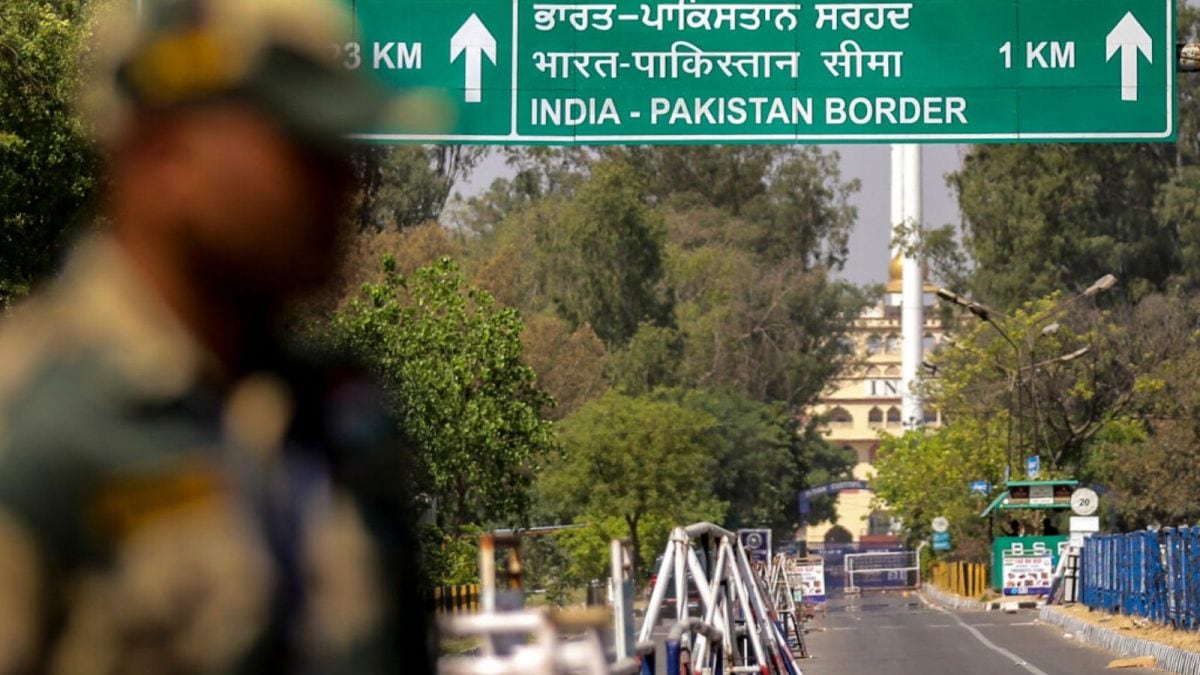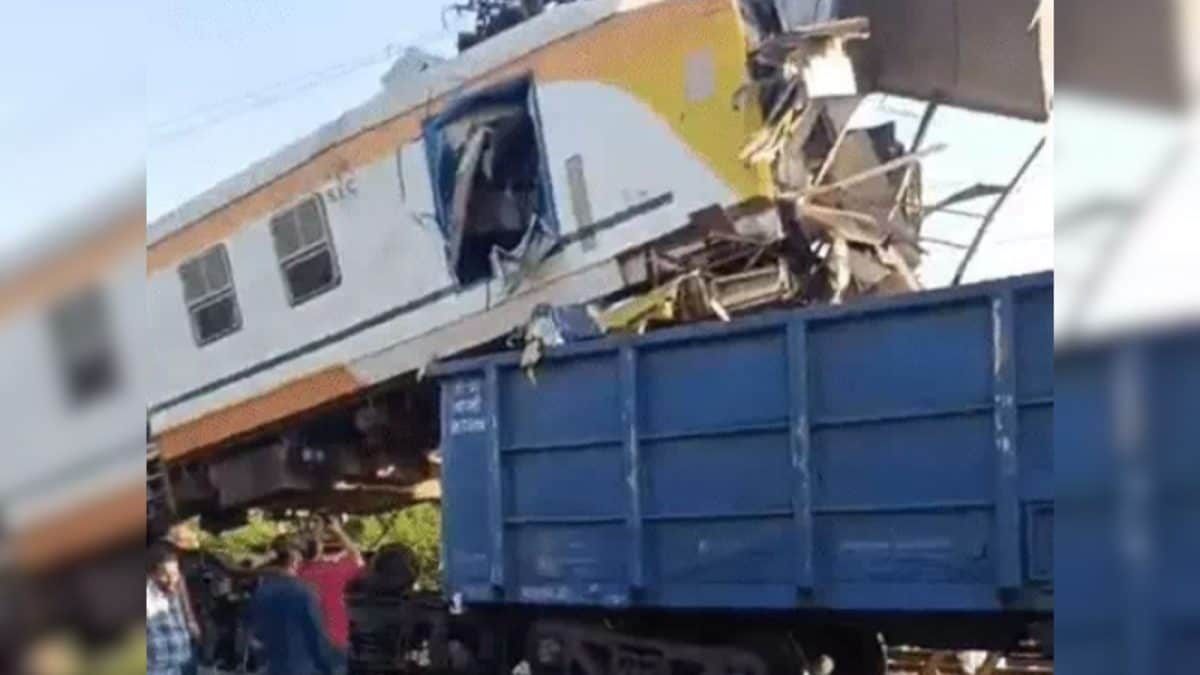On Phulwari Sharif-Janipur Road in Babhanpura, a narrow two-storey building functions as a private library for students preparing for competitive exams. More than 250 young men and women study here daily, most of them from Patna and neighbouring villages. The library has become a refuge for those who cannot afford expensive coaching centres but continue to hold on to the hope of a government job.
Among them is Aman Kumar, 23, a graduate from Patna. He began preparing for recruitment exams about one and a half years ago. “I cleared the written test for Bihar Police twice,” he says. “The first time, I had a leg problem and couldn’t appear for the physical. The second time, the paper leaked. The exam was cancelled. After that, we waited for information for almost a year.”
Aman says that for people like him, government jobs are the only real option. “There are no private jobs here,” he says. “Our education system has been weak from the start. Private coaching centres charge a lot, and children from villages can’t afford them. So everyone runs after government jobs.”
He explains that exam notifications are irregular and unpredictable. “Sometimes the notice comes suddenly, sometimes it’s delayed for so long that students lose motivation,” he says. “If the exams happened on time, we could plan properly.”

‘Honesty doesn’t help’
Even the process of applying is difficult. “You can’t get certificates from the block office without paying bribes,” he says. “If you try to get them through normal channels, your form keeps getting rejected. You go again and again until you finally pay. Only then does it move forward.”
Aman looks down at his books before adding, “We study honestly. But honesty doesn’t help here.”
About 30 km from Patna, the struggle looks the same. In Madhuban village, 27-year-old Dharmendra Kumar has been preparing for government jobs for four years. His father died during the pandemic, and his mother, Rita Devi, now supports the family through farm work.
“My mother works in the fields and does a bit of farming,” Dharmendra says. “That’s how we manage. Our income is six to eight thousand rupees a month.”
He is the first in his family to complete graduation. “In the village, people preparing for government jobs are respected,” he says. “They have power and security. Private jobs here pay eight or ten thousand for twelve hours of work. That’s not enough to support a family.”
He stayed in Patna for a year to prepare before returning to the village to continue studying. “My friends who once prepared with me are now doing labour work in other States,” he says. “I stayed because I still believe education should mean something.”

Exam spree
He opens a file filled with exam receipts and admit cards. “I’ve applied for several exams, Bihar Police, Railways, and SSC,” he says. “Sometimes the exam gets cancelled, sometimes delayed for years. Paper leaks destroy everything. Poor students can’t afford coaching again and again. Every time the government announces a new exam, our hopes rise. But by the time it’s cancelled, our money and months of study are gone.”
In Patna, he survived on little. “I used to get a thousand rupees from home every month,” he says. “I cooked for myself using rice and dal brought from the village. Coaching costs too much, so I study on my own.”
“In our village, people say the government has forgotten the youth,” he says. “We are not even angry now, just tired.”
He looks away for a moment before saying, “Sometimes I think of giving up. But my mother tells me to keep going. Maybe this time, I’ll clear it.”
Rita Devi sits on the verandah outside her house, her palms rough from farm work. “I work in the fields and do labour,” she says. “Even if we were starving, I prioritised his education. Government jobs are better than private ones. Private jobs don’t give stability or benefits for family and children.”

‘Studies our only hope’
She never borrowed money. “We sold goats and crops to pay his fees,” she says. “He is the first in our family to study this much. People in the village ask me why I spend money on his studies, but I tell them this is our only hope.”
Her voice softens when she speaks about his future. “I tell him not to lose hope,” she says. “If not this time, then the next. I still believe he will succeed.”
In Patna, Niranjan, who works with students from the Manjhi community, says unemployment has become one of the most pressing problems in the State. “Families sell land or jewellery to send their children to coaching,” he says. “When those children don’t succeed, the pressure becomes unbearable. Some boys even say, ‘If I don’t clear it this time, I’ll end my life.’”
He has also seen the information gap widen between the capital and the countryside. “Within 30 km of Patna, the situation changes completely,” he says. “In the villages, students don’t even get to know about new exam notifications on time. They depend on others for every update. By the time they find out, the deadline is gone.”
He believes the timing of job announcements adds to the frustration. “The government opens job portals one or two months before elections,” he says. “For the rest of the five years, nothing happens. It’s a cycle of hope and disappointment.”

Social value of govt. jobs
Niranjan adds that the social value of government jobs still outweighs income. “In Bihar, even a peon in a government office is respected more than someone earning ₹25,000 in private work,” he says. “Parents tell their children, ‘Get a government job or don’t come home.’ That mindset pushes everyone in the same direction.”
He pauses before concluding, “The problem is not only unemployment. It’s also about lost direction. Many students start preparing for exams they don’t even want, only because others are doing it. When it doesn’t work, they lose confidence in themselves.”
The Periodic Labour Force Survey (PLFS) shows Bihar’s unemployment rate at about 5%, but the labour-participation rate, the proportion of people actually working or looking for work, remains among the lowest in India. For young people aged 15 to 29, only around 28 out of 100 are working, and among women, the number is even smaller.
A senior official from the State Labour Resources Department said in a recent press note that the government has launched new training and recruitment drives, but acknowledged that “exam irregularities and overlapping vacancies” have slowed implementation.
Paper leaks in 2024 and early 2025 have already delayed recruitment in several key departments, including police, staff selection and revenue. With elections around the corner, many young aspirants say the delays have deepened a sense of betrayal.

Gap between education and opportunity
Despite repeated announcements, most jobs in the State remain informal and unstable. The gap between education and opportunity has left a generation suspended in uncertainty.
As dusk falls, the private library in Babhanpura begins to empty. Students close their books and step out onto the street, their conversations still circling exam dates and notifications. Aman gathers his notes and prepares to leave.
“We study from morning till night,” he says. “There’s pressure from family, neighbours, everyone. People ask when we’ll get a job. But no one sees what aspirants go through.”
He steps outside into the narrow lane. The noise of traffic and evening voices rises around him. “That’s what we do now,” he says quietly. “We wait.”

 1 day ago
7
1 day ago
7









 English (US) ·
English (US) ·